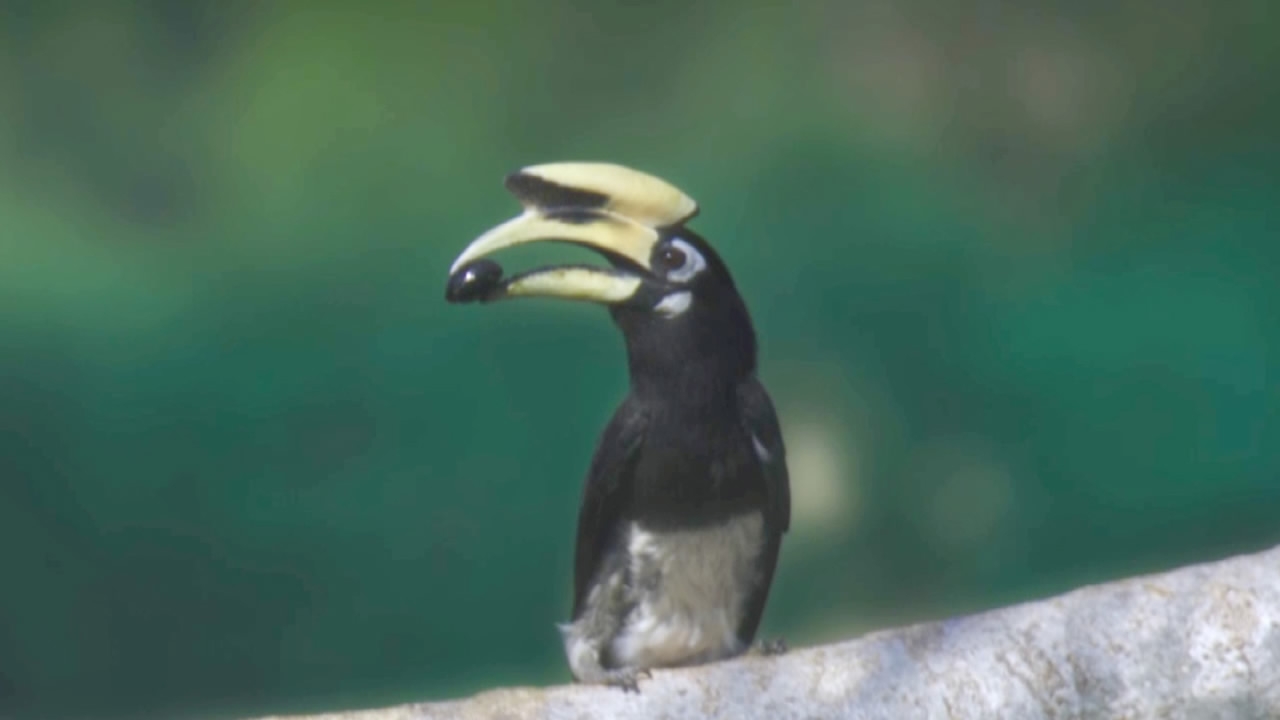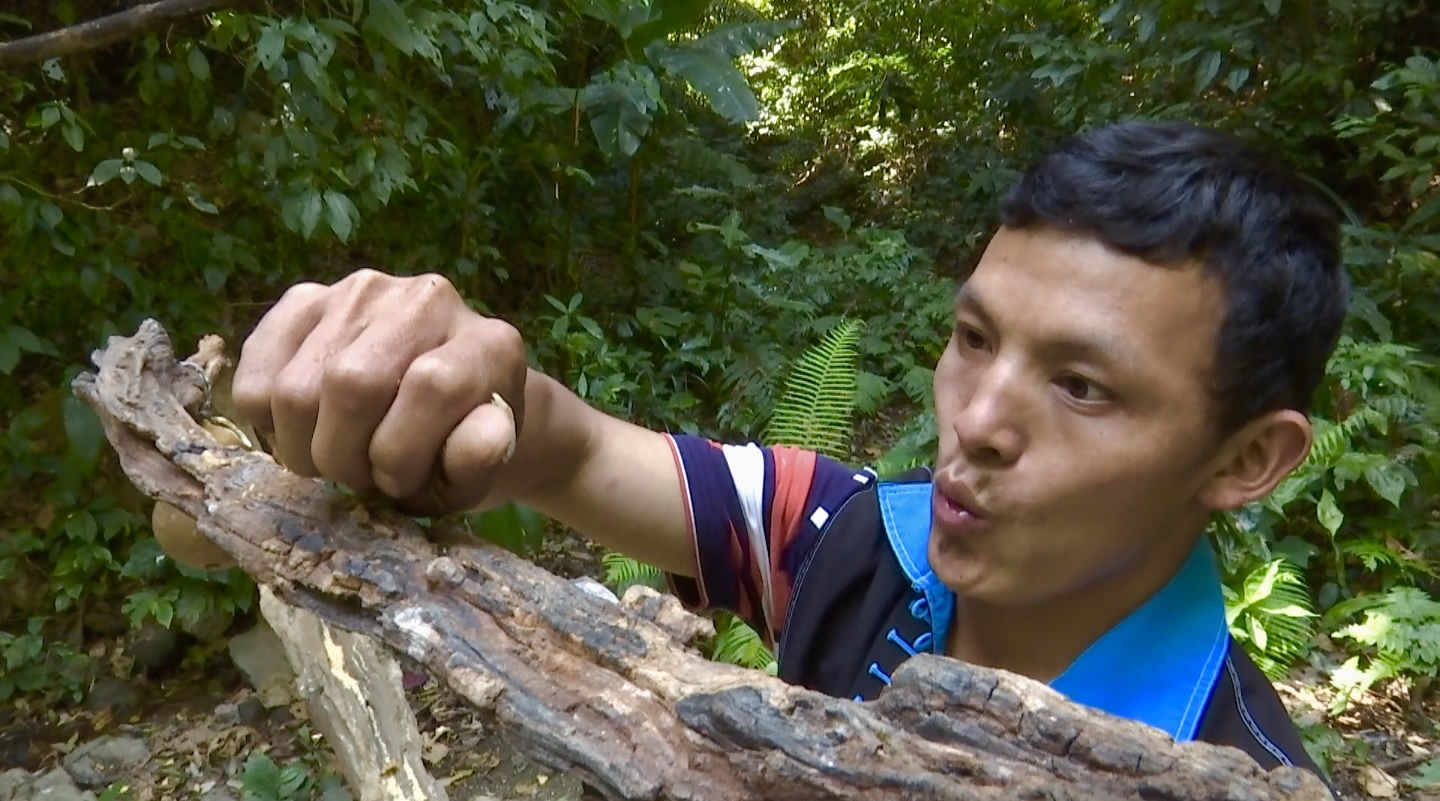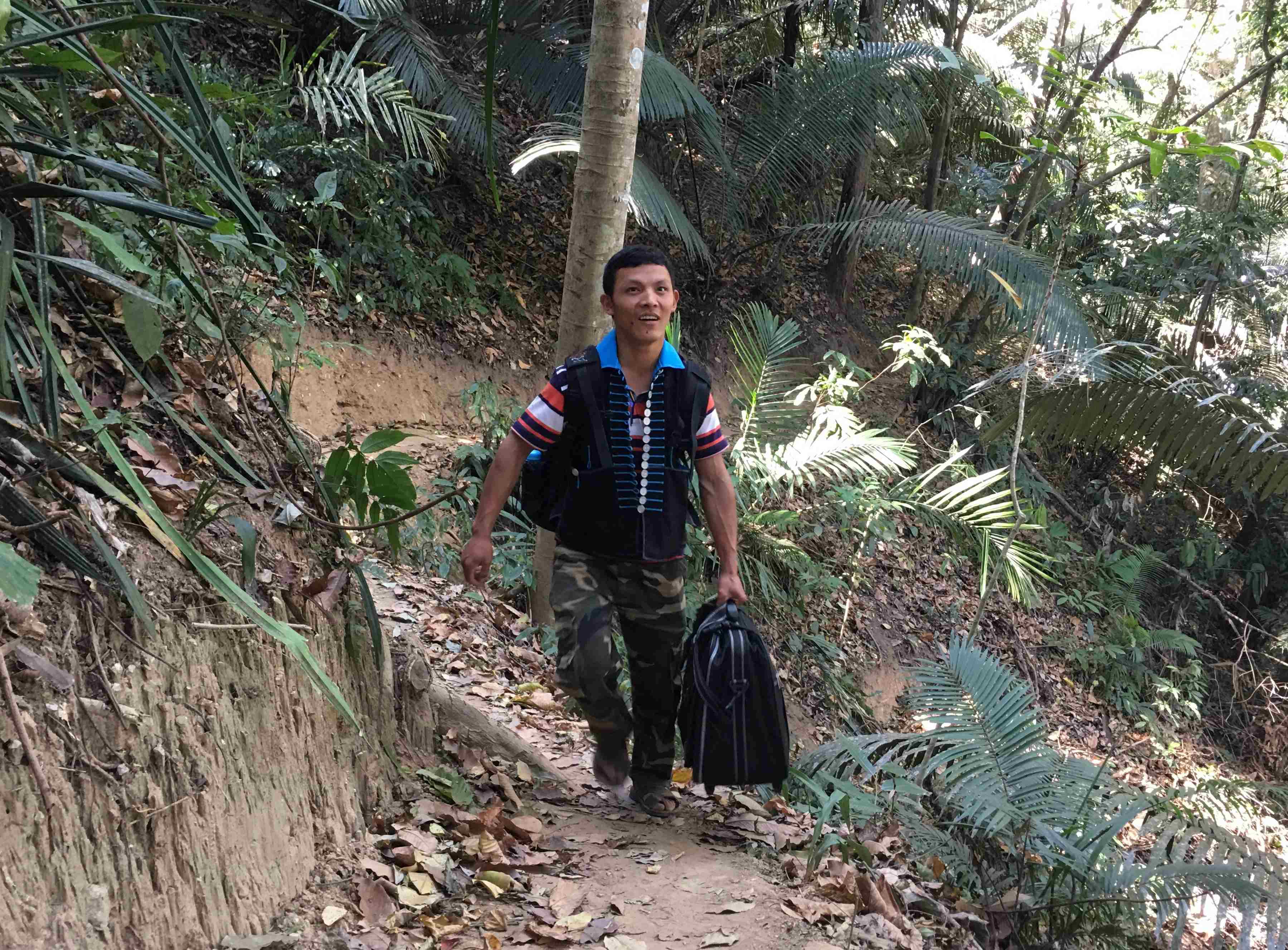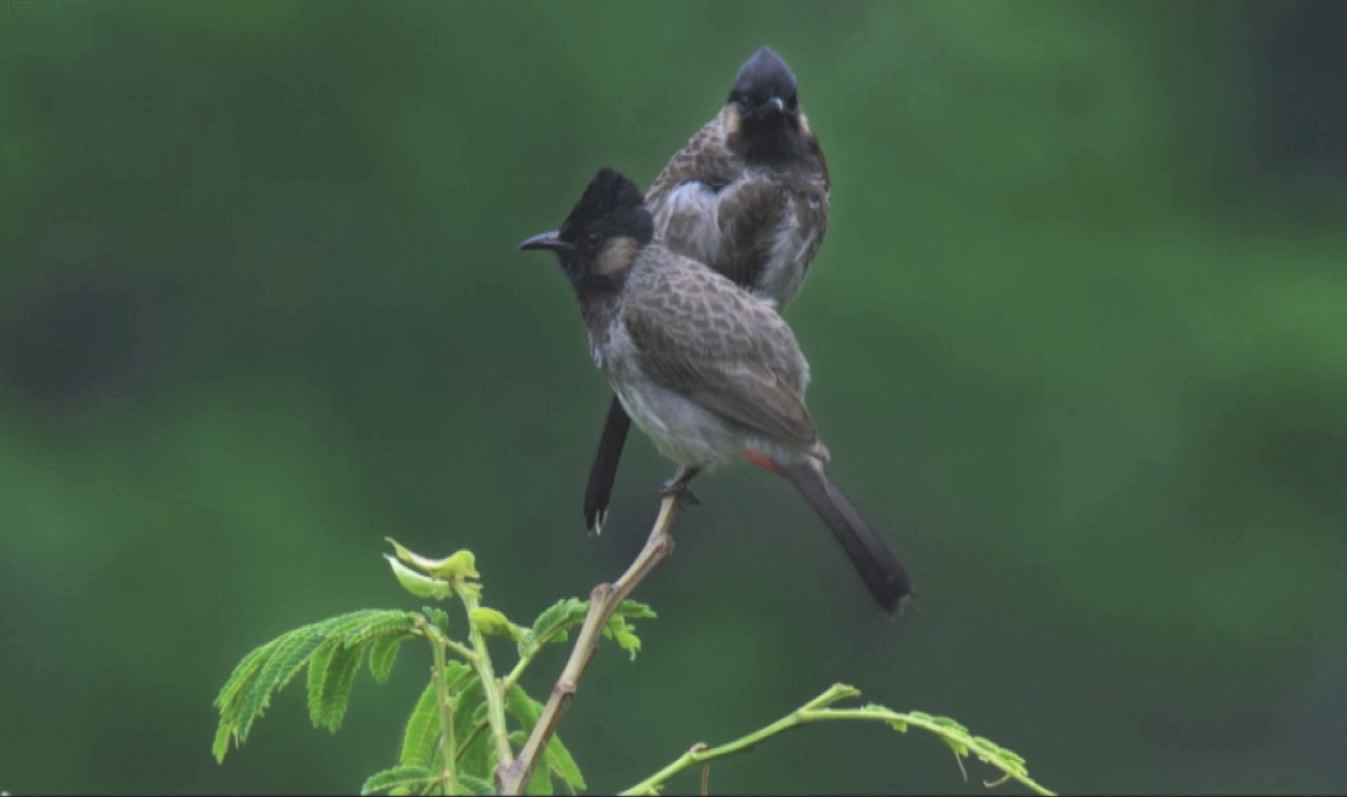
Business
13:55, 11-Apr-2018
Birds bring new hope and awareness to China's border villages
By Yang Jinghao, Luo Caiwen

Feeding birds in the forests near his home is how 32-year-old Cai Wu starts his day. A member of the Lisu ethnic minority group from a small village in Yingjiang County in southwest China has made this one of his most important daily routines for the last three years.
“I come to feed the birds around 7 o’clock every morning. Usually, the large birds like eating corn while the smaller ones prefer mealworms,” Cai told CGTN.

Cai Wu feeds birds in the forests near his home in Yingjiang County every day. / CGTN Photo
Cai Wu feeds birds in the forests near his home in Yingjiang County every day. / CGTN Photo
The area borders Myanmar, and is home to many of China’s minorities such as the Dai, Jingpo, Lisu and Achang. It is also known as a habitat to more than 600 species of birds due to the biodiversity of the climate, including hornbills not found anywhere else in the country. In recent years, more and more bird lovers from home and abroad are flocking here with their cameras.
“This place is very good. There’re many hills here and the vegetation is beautiful. This morning, we saw many different birds. It’s great for us,” Regis Cavignaux, a birdwatcher from France, told CGTN.

A group of bird lovers shoot all kinds of birds from the bird-watching sheds set up by local villagers. / CGTN Photo
A group of bird lovers shoot all kinds of birds from the bird-watching sheds set up by local villagers. / CGTN Photo
With the growing number of avid birdwatchers coming to the area, the locals are looking at ways to cash in.
With support from the local government, Cai Wu and his fellow villagers began to build bird-watching sheds in the forests in 2015. They charge each visitor 60 yuan (about nine US dollars). They also provide transportation and carry photography equipment for visitors.
Months ago, Cai and several other villagers just opened a hostel and a restaurant near the forest. He said what they can get from the bird-watching services is a lot more than traditional farming.

Cai Wu carries bags and photography equipment for his guests. / CGTN Photo
Cai Wu carries bags and photography equipment for his guests. / CGTN Photo
More importantly, benefiting from the gift of the nature, people’s awareness on environmental protection has been largely improved over the years.
“We used to eat birds around here, but now we are committed to protecting them. And we don’t cut trees for money any more. We no longer think of damaging the environment,” Cai said.
The local government sees the industry as a way to boost tourism to the area, and is stepping in to introduce a platform company to encourage efficient growth.
Yan Bu, head of the Yingjiang County, said the government would try to improve infrastructure and services to this area in terms of eating, lodging and transportation.
“In this way, the profits for the locals are expected to be maximized,” said Yan.
Calling himself a “bird guide,” Cai is the father of three. On the weekends, he teaches his kids to recognize the different birds of the woods. He said he hopes his children and their friends can become knowledgeable about birds. He believes the way to protect the creatures and their habitats should be passed down from generation to generation.

Two birds stand on a tree. / CGTN Photo
Two birds stand on a tree. / CGTN Photo

SITEMAP
Copyright © 2018 CGTN. Beijing ICP prepared NO.16065310-3
Copyright © 2018 CGTN. Beijing ICP prepared NO.16065310-3